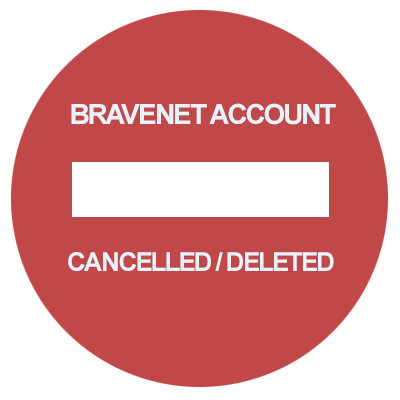Myotonia Congenita Forum
This forum has been closed for comments. You can still search archived messages.
Visit the Non-Dystrophic Myotonias Facebook Group
I know this is a topic that can be searched...Anesthesia to past posts from many and Jan for sure. I just thought it would be important to just refresh those old and new about the dangers of Anesthesia and Myotonia Congentia. As I am going away and leaving my son in the hands of a good friend, I dug up a letter I received from a doctor who is aware of the complications because he administers Anesthesia on a daily basis. One never knows what can happen when you leave your child and you are not there. Since I once went on a cruise and our 19 year old did not want to come....within 30 minutes of leaving the dock, our cell phone rang and our daughter was in emergency surgery. So, I dug the following letter out for my son's caregiver.
He wrote to Me:
There are several concerns when anesthetizing patients with myotonia congentia. First off there appears to be an increased risk of developing malignant hyperthemia (MH) which is a very dangerous and often fatal anesthetic complication induced by depolorazing neuromuscular blockers like succinylcholine and by the inhalational anesthetics. The inhereited predispostion to developing MH is heterogeneous. There is a defect in ca++ influx into unrestrained muscle contraction. MH is linked to a defect in the muscle sarcolemyma ryanodine receptor. This of course is not the same defect as that seen in myotonia congentia. It appears that many causes of intraoperative muscle rigidity in patients with myotonia are misdiagnosed as MH. It is a little unclear if the risk for MH is increased but for now it is best to assume that it is increased and to have the anesthesiologist deliver what is called a non-triggering anesthetic. This can be easily done.
Patients with myotonia are at increased risk of developing masseter muscle spasm of the jaw and this can lead to inability of the anesthesiologist to manage the patients airway and will often lead to cancellation of the case before it gets started. Masseter muscle spasm is often associated with MH but is also seen in myotonia leading to some confusion in making the proper diagnosis in this emergency situation. Masseter spasm is seen most commonly afer succinylcholine administration.
Besides the risk of MH. Patients with both types of Myotonia should never be given the depoloraizing muscle relaxants like Succinylcholine. This causes sustained muscle contraction instead of the expected relaxation and can lead to the inability to intubate or ventilate the patient, which could be fatal. Also patients with myotonia who are given Succinylcholine may have a massive release of potasium leading to cardiac arrest. Prolonged surgeries leading to muscle compression or the administration of Succinylcholine may lead to post-operative muscle breakdown in the form of rhabdomyolysis which can also cause acute renal failure and death.
Patients with myotonia also run the risk of having prolonged weakness afer surgery which may increase there need for prolonged ventilation and endotracheal intubation. This may be caused by the neuromuscular blocking agents or by the inhalational anesthetics.
Patients with myotonia are also at increased risk of pulmonary aspiration and postop pneumonia.
Regional anesthetic techniques like spinal or epidural anesthesia, should be safe in patients with myotonia. Local anesthetics can also be used.
In summary, before your child has anesthesia, you should talk to the anesthesiologist and explain his disorder and make a plan for a non-triggering anesthetic which will avoid most of the problems listed above and can be readily delivered.
Preparation of the operating room anesthesial machine and preparation of the anesthsiologist are very important in anesthetizing these patients.
If there are spelling errors it is my typing and not that of the doctor.
Best to all of my friends here.
That's a great letter! I wonder if we can get permission to post that on the website - I am working on a section about anesthesia including a protocol.
Thanks for sharing -
Jan
Country: http://
I know you received the info I sent to you personally about the doctor. I hope he responds to you. I think you will find him to be very helpful.
Best Jan.
Thanks, McB - I hope your doctor lets us add this to our growing library of helpful documents! Lois
Country: http://
Winks to you Lois and I hope you are well. Actually, the doctor that wrote that letter to me is not a doctor I ever met personally. I believe, GOD sends us messages in strange ways but meaningful ways. Almost two years ago I collapsed and almost died taking a drug that is commonly prescribed but has severe side affects and should be off the market, but that is a long story. I was one of the unlucky side affect persons as was this doctor. GOD's connection. Anyway, after finding out his specialty, I inquired about my son's Thomsen's and his profession. I just figured their had to be some link and precaution because anesthia involves the muscles. That was the letter he took time to kindly write me, that I shared above. I really hope that he responds to Jan and I bet he will. He seemed to really care about the plight of those with Myotonia and his profession.
Again Lois, winks and I hope you are doing well.
Just stopped by today to check for any recent treatment improvements. And I saw this post.
Just wanted to mentione that I coded during 2 separate surgeries. This was before I had the MC diagnosis. Had other surgeries after the dx and they went fine. Always mention it to the anesthesiologist.

